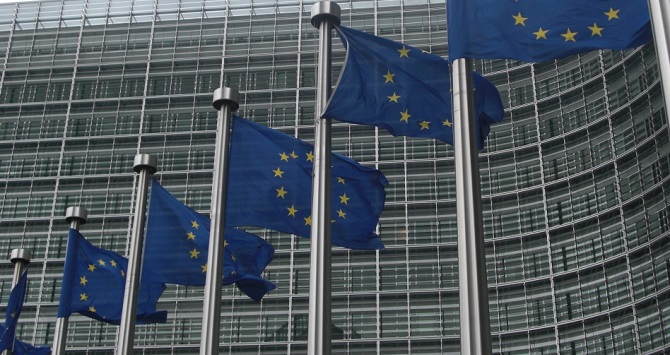In this post, the University of Stavanger’s Tevfik Murat Yildirim, Associate Professor of Political Science, Gunnar Thesen, Professor of Political Science, and Erik De Vries, PhD Fellow, and University of Southampton’s Will Jennings, Professor of Political Science, explain the implications of their research into the relationship between parliamentary appearances and media coverage.
It has become conventional wisdom that the mass media play a vital role in political processes. Not only do political journalists bring what happens in parliament to the attention of the broader public, they also help create the various incentives under which our political representatives work. Simply put, would legislators behave the same way if they knew that what they did and said in parliament would be kept behind closed doors forever? Decades of empirical research has demonstrated that elected officials do care about how the mass media depict them and their work, and that politicians alter their behavior strategically to make the best out of media attention. Some research went so far as to suggest that members of parliament engage in legislative debates mostly for theatrical purposes, often prioritizing style over substance. Most agree that access to media attention is a valuable resource for politicians, as it helps them further their policy and career goals by reaching wider audiences.
Making parliamentary speeches on the legislative floor to further partisan goals or to voice the demands of the regional constituency is an important part of legislators’ work, and, perhaps unsurprisingly, most legislators make at least one parliamentary speech during their term of office. But to what extent do representatives’ parliamentary activities contribute to their media visibility? Do political journalists consider parliamentary activities by some representatives more newsworthy than those of the others? In a recent article, we draw on a unique dataset of 600,000 news appearances of legislators in the UK (from the Guardian, the Times, and the Sun) and Norway (from Aftenposten, Dagbladet, and VG) to explore the unequal distribution of media attention across subgroups of legislators. In our analysis, we explore the relationship between the media visibility of legislators and the number of speeches they made on a monthly basis between 2000 and 2016. We argue that representatives who take an active role in legislative debates get more coverage in the news. However, we also argue that the importance of being an active member of parliament (MP) for media visibility varies considerably across subgroups.
The unequal effects of parliamentary speechmaking on media access among MPs can be largely explained by power hierarchies in politics. We look specifically at three characteristics that are likely to shape MPs’ newsworthiness:
- their seniority (experience in politics),
- the centrality of their district (i.e., geographic proximity to the capital)
- whether they belong to an incumbent party.
Seniority
The most experienced MPs, and MPs from central districts, tend to have stronger ties with political journalists working for national newspapers. In contrast, newly elected MPs and those representing remote districts find themselves in a disadvantaged position in competition for media access. Senior MPs’ advantage in media competition stems mainly from the fact that they tend to have a greater understanding of the formal and informal rules that govern mediatized politics.
The centrality of their district
The disadvantage of remote MPs could be explained by both the perceived limited news value of distant districts and a tougher trade-off between time in the capital and time in their own. Divided between the pressure to undertake legislative work and to establish ties with constituents at home, MPs from remote districts have less time and resources to develop close relationships with the national press. Moreover, because remote MPs are more likely to prioritize constituency matters over national policy priorities in their parliamentary activities, their political work may be seen less newsworthy in national newspapers.
From the incumbent party
Finally, government MPs have a natural advantage in competition for media access, as they have greater control over the political agenda of the day. Because they set the agenda and are better equipped to answer questions about day-to-day politics, they are more likely to get contacted by political journalists.
Our research findings
Our findings support these theories: specifically, we show that although engagement in legislative debates is positively associated with MPs’ media visibility, senior MPs, government MPs and MPs from central districts benefit more from speechmaking relative to junior MPs, opposition MPs, and MPs representing peripheral districts.
Our findings are highly similar across the cases of Norway and the UK, except for the difference that the central-periphery contrast does not hold true in Norway. Despite their distinct electoral systems and media ecosystems, the link between MPs’ political work and media visibility in these two countries shows striking similarities. This implies that what MPs do and say in parliament surely matters for media visibility, but that the visibility-boosting effect of political work is conditioned by MPs’ positions in existing power hierarchies.
Political journalism thus works to the advantage of both those who have relatively more resources to influence the political agenda, and those who remain active on the floor.
To conclude, power hierarchies in mediatized politics are real, and often hard to overcome. Our analysis suggests that those who are at the bottom of these hierarchies are forced to work harder and speak more in parliament to get the same level of media access as their colleagues. Political journalism thus works to the advantage of both those who have relatively more resources to influence the political agenda, and those who remain active on the floor. This certainly has, and will continue to have, important consequences for systems of inequality in politics.
This post represents the views of the authors and not the position of the Media@LSE blog, nor of the London School of Economics and Political Science.
Featured image: Photo by Marco Süssi on Unsplash





